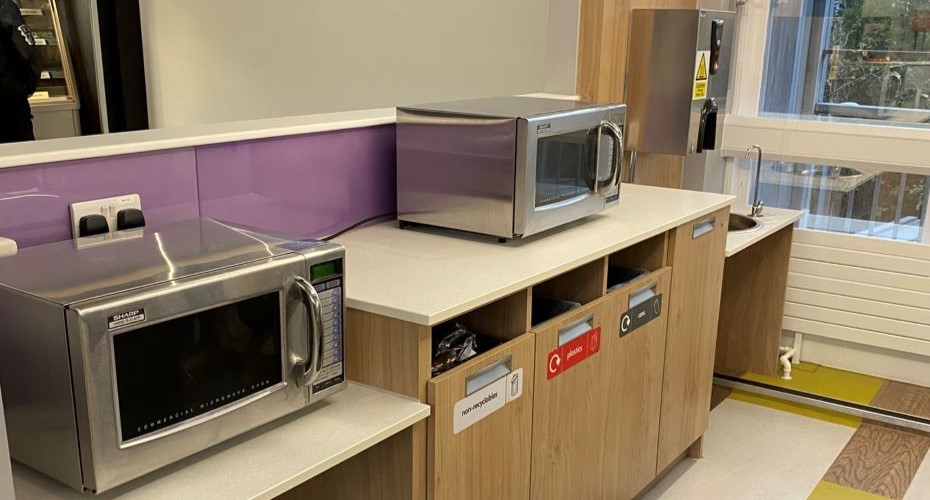Hi everyone! I’m Lucy and I’m in my final year studying BA English at the University of Exeter. Finances were one of my main concerns when exploring university options, something I imagine is even more relevant now than when I applied three years ago.
University is an exciting time of independence, but for many this comes the challenge of budgeting and learning how to manage living costs, such as rent, for the first time. However, the range of schemes and resources for financial support that the University of Exeter offers reassured me that money did not need to be a barrier to higher education.
Bursaries
I personally benefit from the Access To Exeter (ATE) Bursary. This is available to full time and part time Home and returning EU students whose household income is £30,000 or below. The total which you will be eligible for will depend on your household income (see here for 2024/25 amounts) which is paid directly to you in three instalments that reflect the number of weeks in each term. For me, the ATE is crucial as it supplements my everyday expenses such as my weekly food shop and goes towards all the books I need for my English course.
The University automatically assess your eligibility for this bursary based on your household income information from the relevant UK Funding Body, meaning I didn’t have to complete any additional forms to receive payment. All I had to do was to not opt out of consent for Student Finance to share this information confidentially with the University.
There’s a variety of financial support based on different criteria, for both undergraduate and postgraduate students. For example, Exeter students who identify themselves as Care Leavers on their UCAS application when starting an undergraduate or PGCE course will have their tuition fees waived. They may also be eligible for a bursary to help with accommodation costs during the summer vacation period between their first and final year of study.
If you are currently in school and considering whether studying in Exeter could be right for you, Exeter Scholars is a valuable programme to get a taste of what it’s like studying at university whilst ensuring you will be supported if you accept a place here. Students who have successfully undertaken the Exeter Scholars programme in Year 12 and have passed as a Senior Scholar can access a benefits package that includes either a three-year Railcard or an equivalent £70 voucher, as well as money towards society memberships.
Thinking about training to be a teacher at Exeter? UK students who study a PGCE with an assessed household income under £30,000 will receive a £600 bursary automatically from the University.
Scholarships
Unlike bursaries which are non-competitive payments intended to help students who have difficulties funding their studies, scholarships are awarded based on academic or personal achievement.
For example, there are Sports Scholarships available for student athletes competing internationally or within the UK. These are awarded annually to undergraduates and postgraduates who compete for the University in British Universities and Colleges Sport (BUCS) events. Similarly, there are Choral Scholarships available in association with Exeter Cathedral and other local churches.
Entrance Scholarships applications are open to students who hold an offer for undergraduate study at the Exeter and Penryn campuses who meet specific requirements. There are a few schemes that might be worth checking out, particularly for residents of Devon and the South West.
Mature students can also apply for a scholarship to help with the cost of their studies. To apply you must be a UK student in the first year of your first undergraduate degree while being 25 or older on the first day of your course. This depends on your assessed household income and whether you meet any of the additional criteria.
As the University of Exeter community includes students and staff from over 150 countries, they support top students from all over the world to study here . The Global Excellence Scholarships provide the opportunity for international students to be awarded for academic excellence and merit to study at Exeter. These scholarships are paid as a reduction in the international tuition fee for the first year of study, once they have received an eligible programme offer. Country specific awards can be found here.
Similarly, if your course includes a year studying abroad, you might be eligible to apply for Travel Scholarships such as the Mrs Bessie Rook Memorial Travel Scholarship. In 2024/25 there were 12 scholarships of £1,000 awarded to students studying in German and/or French speaking countries.
Postgraduate taught students can apply for a number of competitive awards, including Green Futures Scholarships for select programmes in the Faculty of Environment, Science and Economy. The University of Exeter Progression Scholarship and Alumni Scholarships are aimed at helping towards the tuition fees of postgraduate courses for students who are staying on for further study or have previously graduated from an undergraduate course at Exeter.

Part-time work
One way to make the most of your student budget is to work alongside your studies. In my second year, I found casual work on weekends and summer break has been a great way to build employability experience and fit working around my degree. There are a surprising range of roles out there from retail and hospitality to education.
The Career Zone can support you in finding a part time role, including help with CVs, applications or interview technique. I’m signed up to their Internships Bulletin to receive emails about the latest on-campus roles.
Handshake is the main platform that many on-campus or University-related roles are posted on therefore it’s useful to check these regularly for opportunities.
Budgeting Tips

Some other ways you can make your money stretch further during your studies at Exeter is through the affordable options on campus. There are kitchenettes with microwave ovens and hot water facilities across campus, making it even easier to bring leftovers for lunch.
The Super Savour Kitchen, located in The Terrace in Devonshire House, offers a Dish of the Day for £2.25 and jacket potatoes with a topping from £3.60. These are always vegetarian and include vegan options.
Reducing the impact of the cost of living is one of the Student Guild’s priorities, having previously implemented Feed Your Flat events and a Community Fridge at the end of last year. They also put on budgeting skills workshops throughout the academic year which you can find on their events page.
I take part in Survey Superheroes which means I’m paid a £5 voucher for each monthly 10-minute survey I complete for the University! Advisory Boards are a similar opportunity to get paid for giving feedback on a range of topics around student life.
Being prepared is the best way to reduce the stress around money, meaning you know what you can afford to spend on things like socialising and entertainment. I recommend creating a budget at the beginning of each academic year in the form of a spreadsheet or simply written on paper. This way I can clearly see my student loan payments, expected work income and outgoing costs laid out in one place.
Hardship Funds
You can also access extra support during your studies here. The Success For All Fund is a resource for students who encounter unexpected financial hardship that affects their ability to study. Hardship is considered as your allowable expenditure being higher than your income after applying to all Student Loans available to you and have exhausted all other ways of funding your studies at university. This may cover accommodation fees, travel, course costs, living cost, IT equipment and unexpected one-off costs.
If money is preventing you from getting involved in societies, there is a Society Hardship Award which is £50 to be spent on society memberships, sports clubs, stash and events. Any student from a widening participation background can apply for this.
Disability Support
If you have a long-term health condition, mental health condition or other disability, a Disabled Students’ Allowance (DSA) can help cover study-related costs. It’s recommended that you apply for these as early as possible after student finance applications open to get support in place for your first term. More information can be found here.
Where to find help and advice

Exeter’s Students’ Guild (or Falmouth & Exeter Students’ Union for Cornwall students) can offer friendly, impartial and confidential advice on finances.
Money worries can be stressful and isolating – the University’s Wellbeing Services are there to help if you feel that finances are negatively affecting your mental health. No one should feel ashamed to be facing difficult financial situations and you don’t need to deal with these alone.
Despite my initial uncertainty, Exeter was definitely the right choice for me and I have not felt that my student experience has been limited because of my background. I hope that this blog has been informative in outlining the many options that the University offers and has equally eased any worries you may have about applying.

